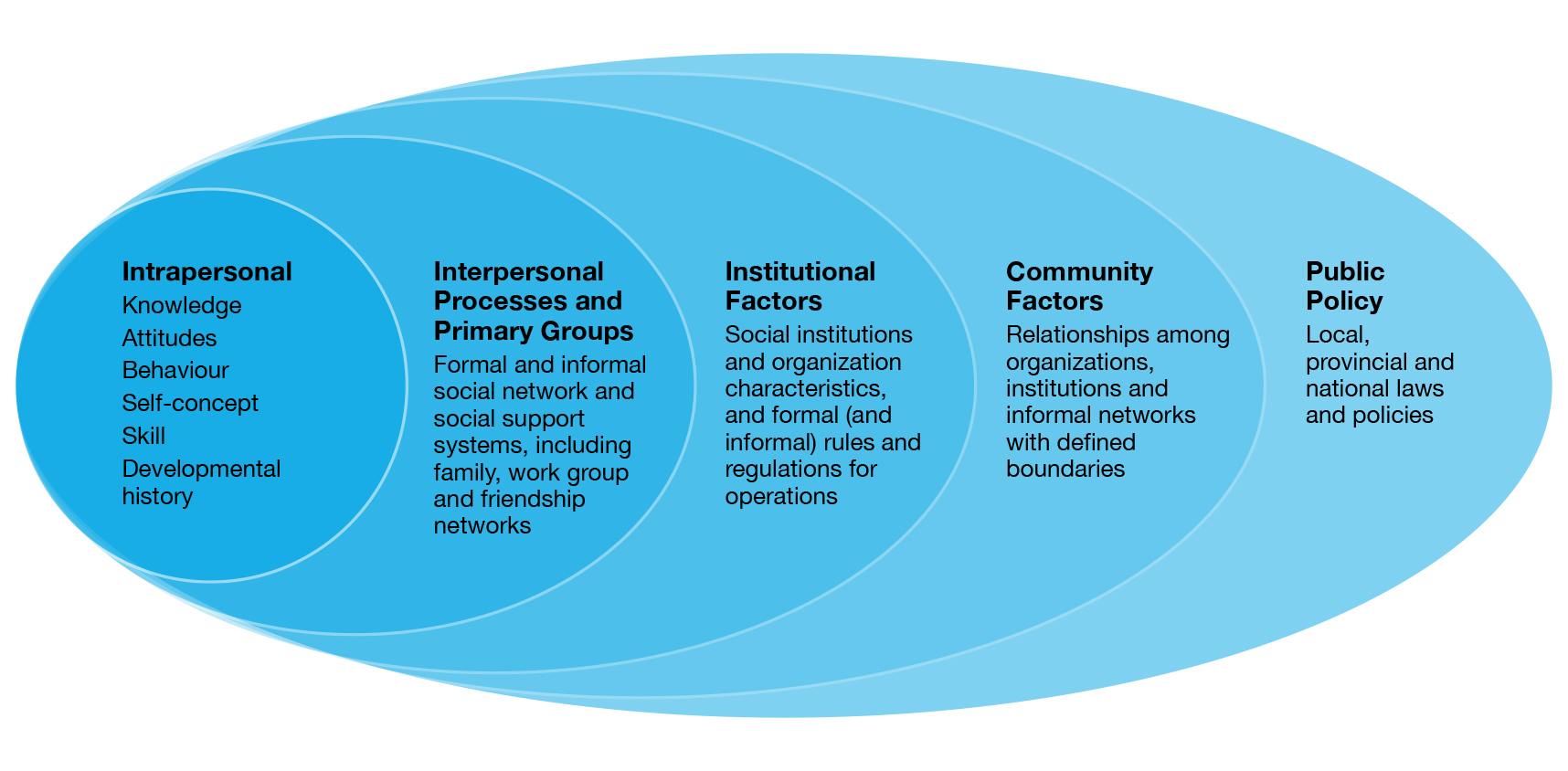Appendix A – Ecological Model
Often when we think of improving mental health for students, we start with the individual: How can we improve coping strategies, help someone to be mentally healthy, and help them find support? If we focus on only the individual student, however, we miss a range of factors that might influence mental health. As Dan Reist says, “If the frogs in a pond started behaving strangely, our first reaction would not be to punish them or even to treat them. Instinctively, we’d wonder what was going on in the pond.”
The student experience is inexorably linked to the workplace experience of faculty and staff. The mental health of campus community members is impacted by the physical environment and the policies and culture at the university. Recognizing the importance of an individual’s environment on their mental well-being is best understood using the ecological model.

The ecological model considers multiple levels that impact health, both physical and mental: intrapersonal, interpersonal, institutional, community, and public policy (ACHA, n.d.).
We propose this model as a lens for curating and developing mental health and wellness education and training resources because it recognizes that an individual is not solely responsible for their own well-being. In addition to focusing on intrapersonal factors (knowledge, attitudes, behaviour, self-concept, skills), the broader context of the individual should be considered. Important learning resources may exist that address the other levels as well. For example, learning resources for faculty members could help them create supportive and healthy learning environments for students. Other resources may focus on how to build community and social support networks as a means for enhancing mental health.
Ecological model image description
The ecological model considers how intrapersonal, interpersonal, institutional, community, and public policy factors affect health:
- Intrapersonal considers the individual’s knowledge, attitudes, behaviour, self-concept, skill, and developmental history.
- Interpersonal processes and primary groups looks at formal and informal social network and social support systems, including family, work group, and friendship networks.
- Institutional factors include social institutions and organization characteristics, and formal (and informal) rules and regulations for operations.
- Community factors include relationships among organizations, institutions, and informal networks with defined boundaries.
- Public policy includes local, provincial, and national laws and policies.
Media Attributions
- Ecological Model © BCcampus, based on conceptual work from McLeroy, Bibeau, & Steckler, 1988; and a diagram by ACHA, n.d., is licensed under a CC BY-NC (Attribution NonCommercial) license

